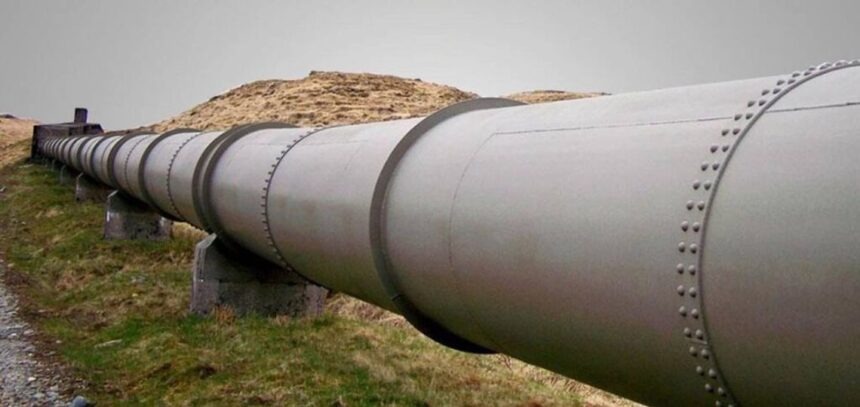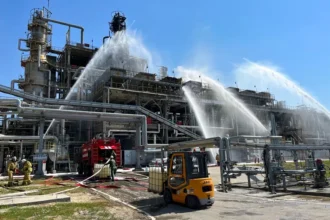Ukraine has claimed responsibility for a targeted attack on a major Russian oil pipeline hub, a move that could significantly disrupt Moscow’s energy exports and escalate the already tense conflict between the two nations. The strike, according to Ukrainian military sources, was part of a broader strategy to weaken Russia’s economic backbone by hitting its critical energy infrastructure.
The facility, located in a region of western Russia that serves as a crucial transit point for multiple major pipelines, reportedly handles vast volumes of crude destined for both domestic consumption and international markets. These pipelines are among Russia’s most valuable strategic assets, supplying fuel to European countries still reliant on Russian oil despite sanctions, as well as to refineries that feed domestic military logistics.
Although Ukrainian officials did not specify the exact method used, regional authorities in Russia confirmed that explosions occurred at the site, causing fires and forcing an immediate shutdown of key pipeline operations. Moscow quickly deployed emergency crews to contain the damage, but experts warn that repairs could take weeks, if not months, depending on the extent of the destruction.
Kyiv’s move comes as part of a calculated campaign to target Russian energy and logistics infrastructure far from the front lines. Ukrainian military strategists argue that such operations create a ripple effect—reducing Moscow’s war revenues, complicating fuel supply chains for the Russian military, and sending a clear signal to the Kremlin that no part of its territory is beyond reach.
Russia, meanwhile, has condemned the attack, labeling it an act of “energy terrorism” and vowing retaliation. Kremlin spokesperson Dmitry Peskov warned that any further strikes on Russian energy facilities would result in “severe consequences” for Ukraine. Moscow has also hinted at expanding its own strikes on Ukrainian infrastructure, a tactic it has already used extensively to target power grids and fuel depots.
International reaction has been mixed. While Western allies have largely refrained from direct comment, some analysts argue that Ukraine’s decision aligns with its right to defend itself against a full-scale invasion. Others caution that attacking deep inside Russian territory risks provoking a dangerous escalation, particularly in the energy domain where global oil prices could be impacted.
Oil markets reacted cautiously to the news, with Brent crude prices spiking briefly before settling back as traders awaited clarity on the scale of the disruption. Analysts at major investment banks suggest that if the damage is extensive and repairs are delayed, the resulting supply crunch could push global prices higher in the coming weeks.
This latest strike underscores the evolving nature of the conflict, where traditional battlefield clashes are increasingly supplemented by precision operations aimed at critical economic nodes. As winter approaches, Ukraine’s strategy to choke off Russia’s energy revenues could become one of the most consequential fronts in the war—both militarily and economically.
If confirmed in full, the attack on the Russian oil pipeline hub marks one of Kyiv’s most ambitious strikes to date, targeting the very arteries that keep Moscow’s war machine fueled and funded. Whether this will force the Kremlin to reconsider its military strategy—or double down—remains to be seen.














